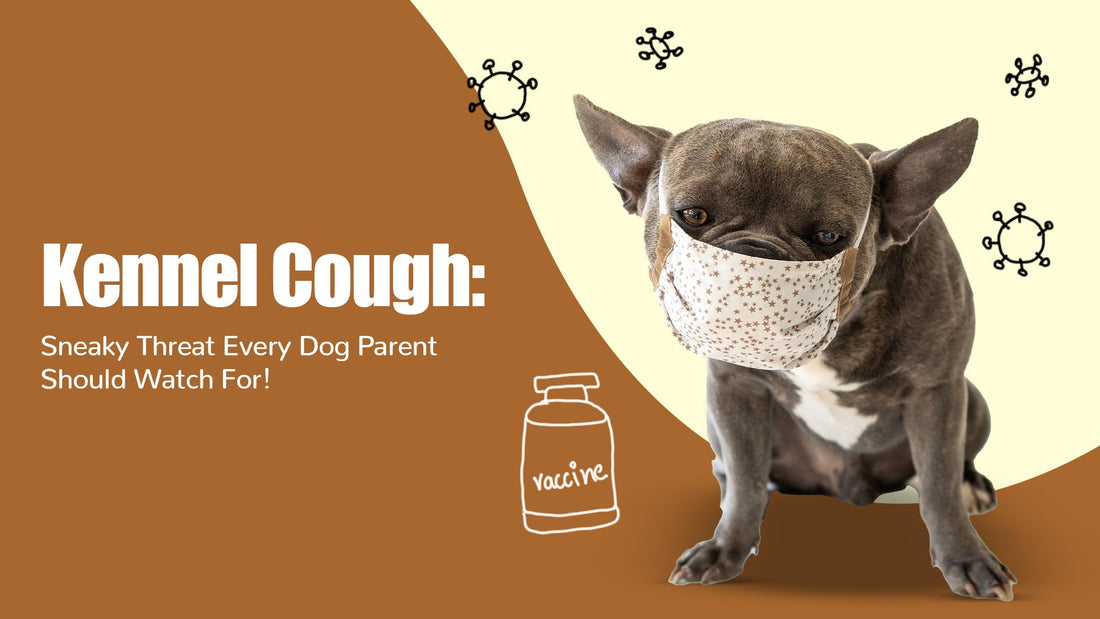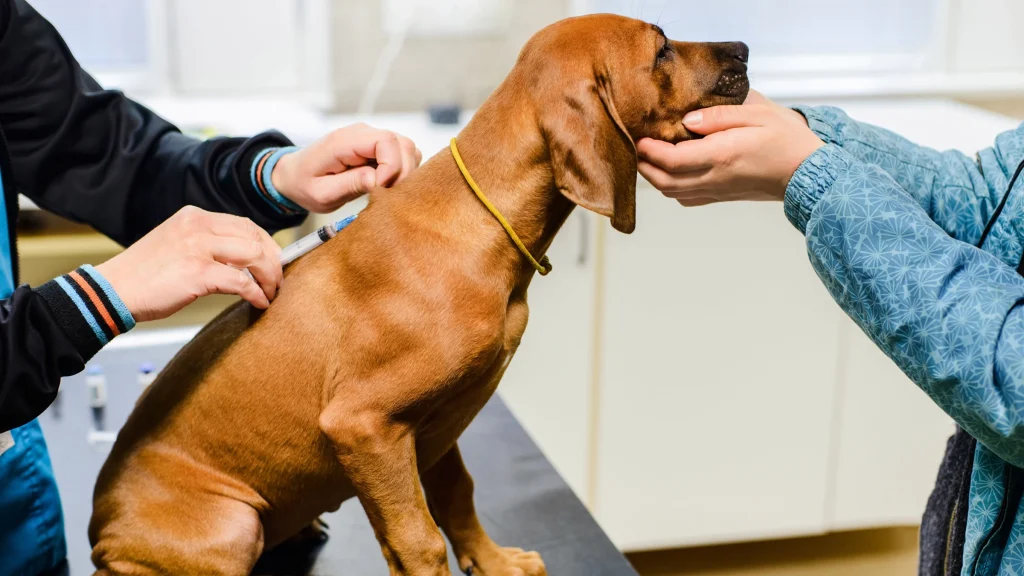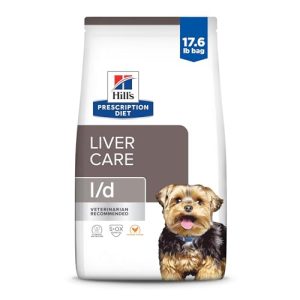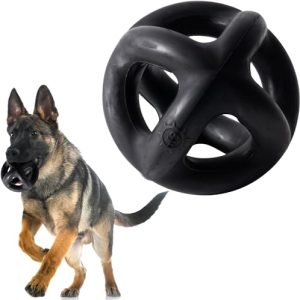Your furry friend is more than just a pet; they’re a beloved family member. So, when your dog starts coughing, it’s natural to feel concerned.
Kennel cough is a common respiratory issue in dogs, but the good news is that it’s usually manageable. Are you worried about your dog’s health and wondering what steps to take next? You’re not alone, and you’ve come to the right place.
We’ll guide you through what kennel cough is, how to recognize its symptoms, and most importantly, what you can do to ensure your dog gets back to their happy, tail-wagging self. Stay with us to discover simple yet effective ways to care for your dog and ease your worries.
Symptoms To Watch For
Recognizing the symptoms of kennel cough early can make a big difference in how quickly your dog recovers. It’s not always obvious at first, so you need to keep a close eye on any changes in your dog’s behavior or health. Knowing what to watch for helps you act fast and protect your furry friend from complications.
Common Signs Of Kennel Cough
You might notice a persistent, dry cough that sounds like a honking goose. This cough can worsen after exercise or excitement. Along with coughing, your dog may also have:
- Runny noseor nasal discharge
- Sneezingfrequently
- Lethargyor less energy than usual
- Loss of appetite, even if mild
- Gaggingor retching, especially after coughing
- Mild fever, though it’s not always present
Watch if your dog’s cough becomes wet or if breathing seems labored. These changes could signal a worsening infection. Early signs can be subtle, so trust your instincts if something feels off.
When To See A Vet
If the cough lasts more than two weeks or gets worse, it’s time to get professional help. Difficulty breathing, high fever, or coughing up blood are urgent signs that require immediate veterinary care. Your vet can diagnose kennel cough and suggest treatments to ease your dog’s discomfort.
Don’t wait for symptoms to escalate. Sometimes what looks like kennel cough can hide more serious issues. Have you noticed any unusual behavior or symptoms in your dog that concern you? Acting quickly can prevent complications and keep your dog healthier, faster.
Causes And Transmission
Kennel cough is a common respiratory infection in dogs. It causes a harsh, dry cough and can spread quickly among pets. Understanding what causes kennel cough and how it spreads helps keep your dog safe.
This illness happens when certain bacteria and viruses infect the dog’s throat and windpipe. The main culprit is a bacteria called Bordetella bronchiseptica. Viruses like canine parainfluenza and adenovirus also play a role. These germs irritate the dog’s airways, leading to coughing and sneezing.
How Kennel Cough Spreads
The infection spreads mainly through airborne droplets. When an infected dog coughs or sneezes, tiny droplets carry the germs into the air. Nearby dogs can breathe them in and get sick.
Contact with contaminated surfaces also spreads the infection. Shared water bowls, toys, and bedding can hold the germs. Dogs touching these items can pick up the bacteria or viruses.
- Close contact with infected dogs
- Being in crowded places like kennels or dog parks
- Exposure to contaminated objects
Risk Factors For Dogs
Some dogs face higher chances of catching kennel cough. Puppies and older dogs have weaker immune systems. This makes them less able to fight off infections.
Dogs in group settings also face more risk. Boarding facilities, doggy daycares, and grooming salons often have many dogs close together. This environment helps the infection spread fast.
- Young puppies and senior dogs
- Dogs in kennels or shelters
- Dogs with existing health problems
- Unvaccinated dogs
Home Care Strategies
Home care plays a vital role in helping your dog recover from kennel cough. Providing gentle care can ease symptoms and support healing. Simple actions at home can make your dog feel better and prevent the illness from spreading to others.
Rest And Isolation
Rest is important for your dog’s recovery. Limit physical activity and avoid long walks. Keep your dog in a quiet, calm area to reduce stress. Isolation prevents spreading the infection to other pets. Use a separate room or space away from other animals. Clean bedding and toys regularly to reduce germs.
Hydration And Nutrition Tips
Keep your dog well-hydrated. Offer fresh water often and encourage drinking. Warm water or low-sodium broth can help increase fluid intake. Feed easy-to-digest, nutritious food. Soft, warm meals are gentle on the throat. Small, frequent feedings may be easier for your dog to eat.
Creating A Comfortable Environment
Maintain a clean, quiet space for your dog. Use a humidifier or place a bowl of water near a heat source. Moist air soothes irritated airways and reduces coughing. Avoid smoke, strong smells, and dusty areas. Keep the room at a comfortable temperature, not too hot or cold.

Credit: zigly.com
Medical Treatments
Medical treatments play a key role in helping your dog recover from kennel cough. Prompt care can reduce discomfort and prevent complications. Understanding the right treatments ensures your dog gets the best help.
Veterinary Diagnosis
A vet will examine your dog carefully to confirm kennel cough. They check the dog’s breathing, cough, and overall health. Sometimes, tests like throat swabs or X-rays are needed. Accurate diagnosis guides the right treatment plan.
Medications And Antibiotics
Vets often prescribe medications to ease symptoms and fight infection. Cough suppressants can reduce the harsh cough and help your dog rest. Antibiotics may be given if a bacterial infection is present. Always follow the vet’s dosage instructions carefully. Never give human medicine to your dog.
When Hospitalization Is Needed
Severe cases might require hospital care for close monitoring. Dogs with breathing problems or dehydration get extra support in the clinic. Oxygen therapy or IV fluids can help in critical situations. Hospitalization ensures your dog receives fast and proper treatment.
Preventive Measures
Preventing kennel cough before it starts is the best way to keep your dog healthy and happy. Taking proactive steps can reduce the chances of your dog catching this contagious respiratory infection. You have several practical options to protect your furry friend.
Vaccination Options
Vaccines are a powerful tool against kennel cough. Ask your vet about the intranasal or injectable vaccines available. These vaccines don’t guarantee 100% protection but significantly lower the risk and severity of infection.
Some dogs need boosters, especially if they often visit dog parks or boarding facilities. Think about your dog’s lifestyle—does your dog meet many other dogs? If yes, vaccination becomes even more important.
Avoiding Exposure
Limiting your dog’s contact with infected dogs helps prevent kennel cough. Avoid crowded places like doggy daycares, shelters, or boarding kennels during outbreaks. Even casual sniffing or shared water bowls can spread the infection.
Observe other dogs for coughing or sneezing before allowing interaction. Would you let your dog play near a dog that’s coughing? Probably not, and that caution can save you a vet visit.
Hygiene And Cleanliness
Clean environments reduce the spread of germs. Regularly wash your dog’s bedding, toys, and food bowls with hot water and mild detergent. Disinfect shared spaces after playtime, especially if your dog frequents group settings.
Handwashing before and after handling your dog also helps. Have you considered how your own habits might affect your dog’s health? Small hygiene habits on your part can make a big difference for your pet.

Credit: www.lilyskitchen.co.uk
Recovery And Follow-up
Recovering from kennel cough takes patience and careful attention. Your dog’s health depends on how well you track their progress and manage their environment after the initial treatment. Follow-up care is essential to ensure a full recovery and to avoid future flare-ups.
Monitoring Progress
Keep a close eye on your dog’s symptoms daily. Note any changes in coughing frequency, energy levels, or appetite. If the cough worsens or your dog shows signs of difficulty breathing, contact your vet immediately.
Use a simple checklist to track progress:
- Cough frequency and severity
- Eating and drinking habits
- Activity levels and playfulness
- Any new symptoms like nasal discharge or lethargy
Preventing Recurrence
Think about what triggered the kennel cough in the first place. Was your dog recently in a boarding facility, dog park, or grooming salon? Limiting exposure to crowded places during recovery helps reduce the risk of catching it again.
Maintain a clean and well-ventilated living space. Regularly disinfect your dog’s bedding, toys, and bowls. You can also ask your vet about vaccines that protect against kennel cough and consider scheduling one if your dog is at risk.
Long-term Health Tips
Healthy lungs support faster recovery and better resistance. Make sure your dog gets balanced nutrition and moderate exercise once cleared by the vet. Avoid exposure to smoke, dust, or strong chemicals that can irritate the respiratory system.
Have you noticed your dog coughing after exposure to certain environments? It might be time to adjust their routine. Small changes like choosing quieter walking paths or using a harness instead of a collar can make a difference.

Credit: www.amazon.com
Frequently Asked Questions
What Are The Common Symptoms Of Kennel Cough In Dogs?
Kennel cough symptoms include a persistent dry cough, sneezing, runny nose, and mild fever. Dogs may also show lethargy and loss of appetite. Early detection helps in managing the illness effectively and preventing its spread to other dogs.
How Long Does Kennel Cough Usually Last In Dogs?
Kennel cough typically lasts 1 to 3 weeks. Mild cases resolve on their own, but severe infections may need veterinary care. Proper rest, hydration, and limited exercise speed up recovery and reduce the risk of complications.
Can Kennel Cough Be Treated At Home?
Yes, mild kennel cough cases can be managed at home with rest and fluids. Avoid irritants like smoke and dust. If symptoms worsen or persist beyond two weeks, consult a vet for antibiotics or cough suppressants.
Is Kennel Cough Contagious To Other Dogs?
Yes, kennel cough is highly contagious among dogs through airborne droplets or direct contact. Isolate infected dogs and avoid crowded areas like dog parks to prevent spreading the infection. Vaccination helps reduce the risk.
Conclusion
Kennel cough can stress both dogs and owners. Acting quickly helps your dog heal faster. Keep your dog calm and avoid crowded places. Give medicine only as the vet says. Watch for signs that need urgent care. Clean your dog’s space to stop germs.
Rest and love support your dog’s recovery. Staying patient makes a big difference. Your care helps your dog feel better soon.

Emily Barker is the founder of ChillDogLife.com, a space dedicated to helping pup parents discover the best dog products, lifestyle tips, and cozy ideas for happier homes.
A lifelong dog lover, Emily combines her passion for pets with a knack for research to share trusted recommendations on everything from toys and furniture to health and everyday care.
Her goal is simple: to make life easier, stylish, and more joyful for dogs and the people who love them.







